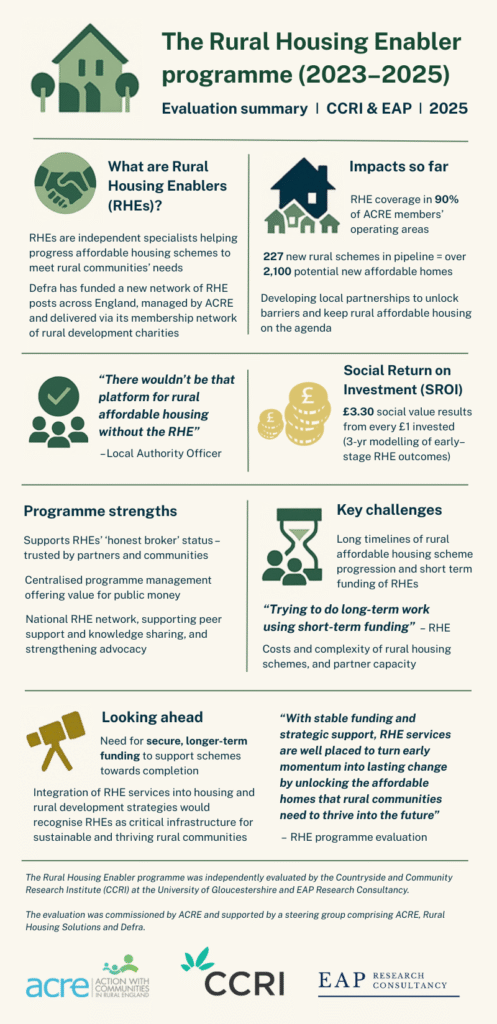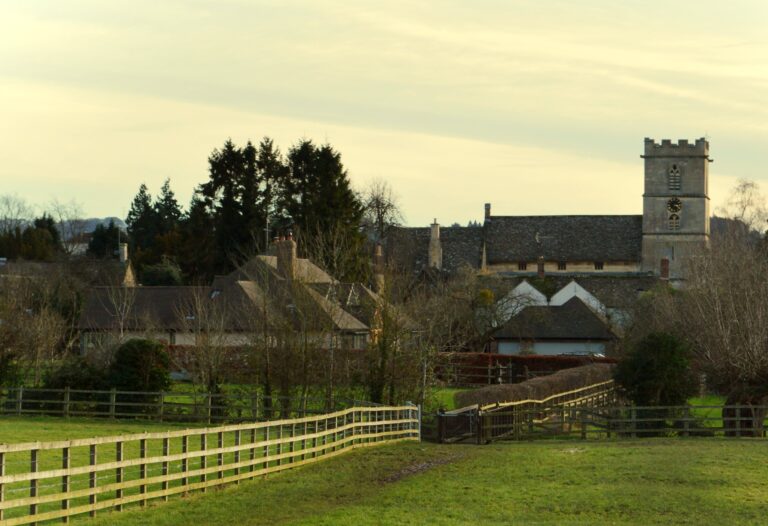An evaluation of the Defra-funded Rural Housing Enabler (RHE) Programme led by CCRI with EAP Research Consultancy has been published. The work was commissioned by Action for Rural Communities in England (ACRE), a charity which aims to improve opportunities for people and communities in rural England.
Launched in 2023 with £2.5 million of Defra funding, the programme supports a network of RHE posts across England. Managed by ACRE and delivered through its network of county-based charities, the programme aims to boost delivery of affordable homes in rural areas, particularly via Rural Exception Sites (RES). These sites allow small-scale developments of social rent housing within villages to meet local needs but are underused by councils due to their complexity and cost. RHEs work with councils, housing providers, landowners, and communities to evidence need, engage residents and developers, and navigate planning challenges, helping ensure that lower-income and younger households can remain in rural areas.
The evaluation used a mixed-methods approach including a systematic evidence review, a national survey of RHEs and partners, six in-depth county case studies, and interviews with the programme’s national management team. The findings highlight RHEs as trusted, independent “honest brokers” who play a distinctive role in rural housing delivery. They bring together local councils, landowners, planners, developers, and communities, bridging gaps where local authorities often lack community engagement capacity or rural expertise. The programme has achieved significant early impact. Since 2023, it has enabled the establishment or expansion of RHE services in 90% of areas covered by the ACRE network – a significant increase in RHE coverage. By early 2025, RHEs were supporting a pipeline of 227 prospective schemes, with the potential to deliver more than 2,100 affordable homes across 19 counties. In places without a previous RHE service, RHEs have been crucial in raising awareness of rural housing need and brokering the partnerships essential to getting rural affordable housing on the agenda and schemes off the ground. Local partners reported that, without RHEs, rural housing delivery would slow dramatically as local authorities prioritise larger urban developments – leaving rural residents further disadvantaged. A bespoke Social Return on Investment (SROI) model developed for the evaluation found that every £1 invested by Defra generated £3.30 in social outcomes over three years, demonstrating strong value for money.
The report recommends strengthening the programme through longer-term funding; providing stability, retaining skilled staff, and building confidence among partners. It concludes that RHEs are vital to unlocking affordable housing in rural England. The programme has built strong early momentum, with a growing development pipeline, measurable social benefits, and meaningful community and partner engagement. Sustained investment will be essential to scale this impact and deliver the affordable homes that underpin a thriving and sustainable countryside.
The full report can be downloaded from the ACRE website. An infographic summarising the evaluation is provided below.



